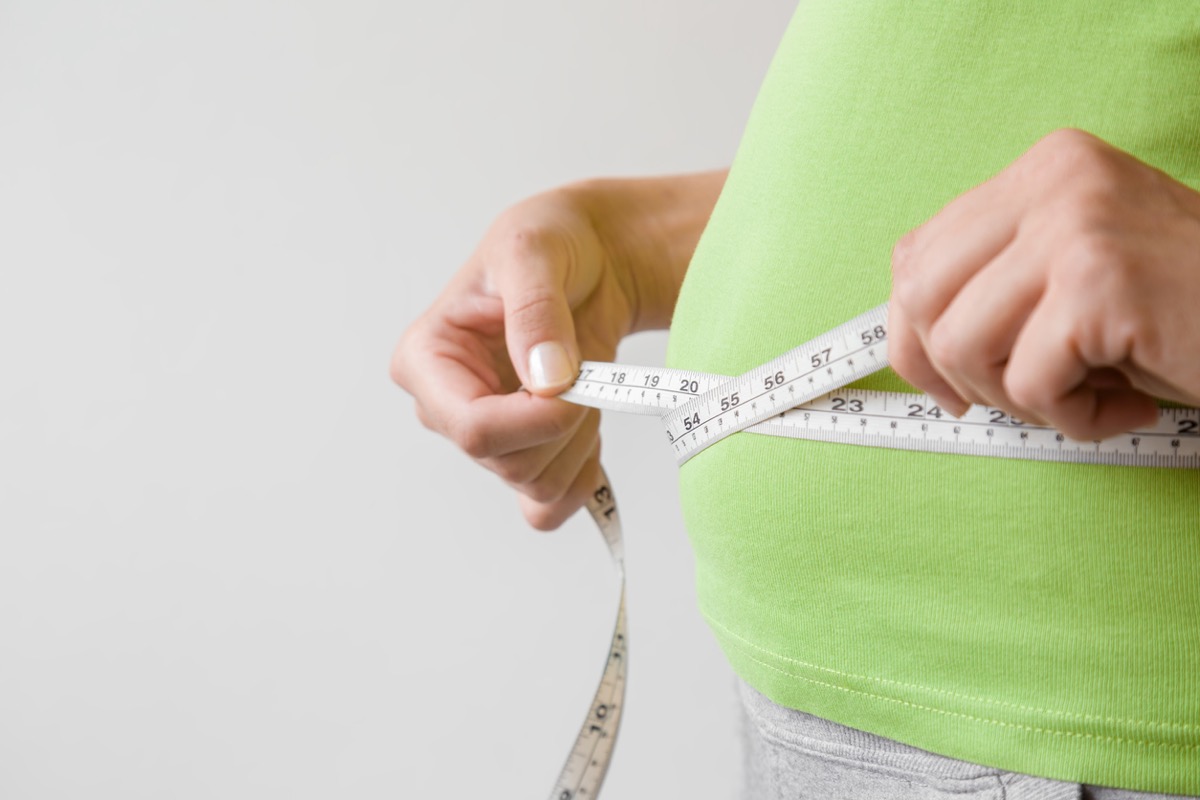“Having obesity, defined as a body mass index (BMI) of 30 or above, increases your risk of severe illness from COVID-19,” writes the CDC. The website explains that BMI is calculated by dividing your weight in kilograms by the square of your height in meters. Though “BMI does not measure body fat directly,” “the correlation between the BMI and body fatness is fairly strong.” Other pre-existing conditions listed by new CDC guidelines include chronic kidney disease; COPD (chronic obstructive pulmonary disease); immunocompromised state (weakened immune system) from a solid organ transplant; and serious heart conditions such as heart failure, coronary artery disease, or cardiomyopathy; sickle cell disease, and type 2 diabetes. According to medical professionals who have dealt with coronavirus patients in New York City-area hospitals, obesity is a condition that’s causing serious complications. NYU Langone Health director Leora Horwitz, MD, recently told The New York Times that “obesity is more important for hospitalization than whether you have high blood pressure or diabetes, though these often go together.” She also stated that “it’s more important than coronary disease or cancer or kidney disease, or even pulmonary disease.” RELATED: For more up-to-date information, sign up for our daily newsletter. A recent 428,225-person study out of the University of Glasgow, which has not yet been published, found that of the 340 patients who were hospitalized after contracting the coronavirus, nearly half—44 percent—were considered overweight and more than 34 percent were clinically obese.ae0fcc31ae342fd3a1346ebb1f342fcb It’s no secret that staying healthy during stay-at-home orders and self-quarantine has become a real challenge. Sales of processed foods are on the rise, as are restaurant deliveries. Additionally, reports of record sales of alcohol, snacks, and packaged foods have abounded over the past month. So if you’re looking to be healthier right now, make sure you’re aware of the 23 Easy Ways You Can Be a Healthier Person in Quarantine.
